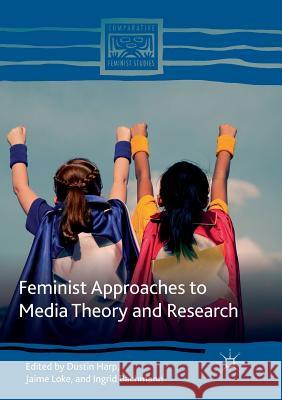Feminist Approaches to Media Theory and Research » książka
topmenu
Feminist Approaches to Media Theory and Research
ISBN-13: 9783030081119 / Angielski / Miękka / 2019 / 276 str.
Kategorie:
Kategorie BISAC:
Wydawca:
Palgrave MacMillan
Seria wydawnicza:
Język:
Angielski
ISBN-13:
9783030081119
Rok wydania:
2019
Wydanie:
Softcover Repri
Numer serii:
000250862
Ilość stron:
276
Waga:
0.36 kg
Wymiary:
21.01 x 14.81 x 1.6
Oprawa:
Miękka
Wolumenów:
01
Dodatkowe informacje:
Wydanie ilustrowane











